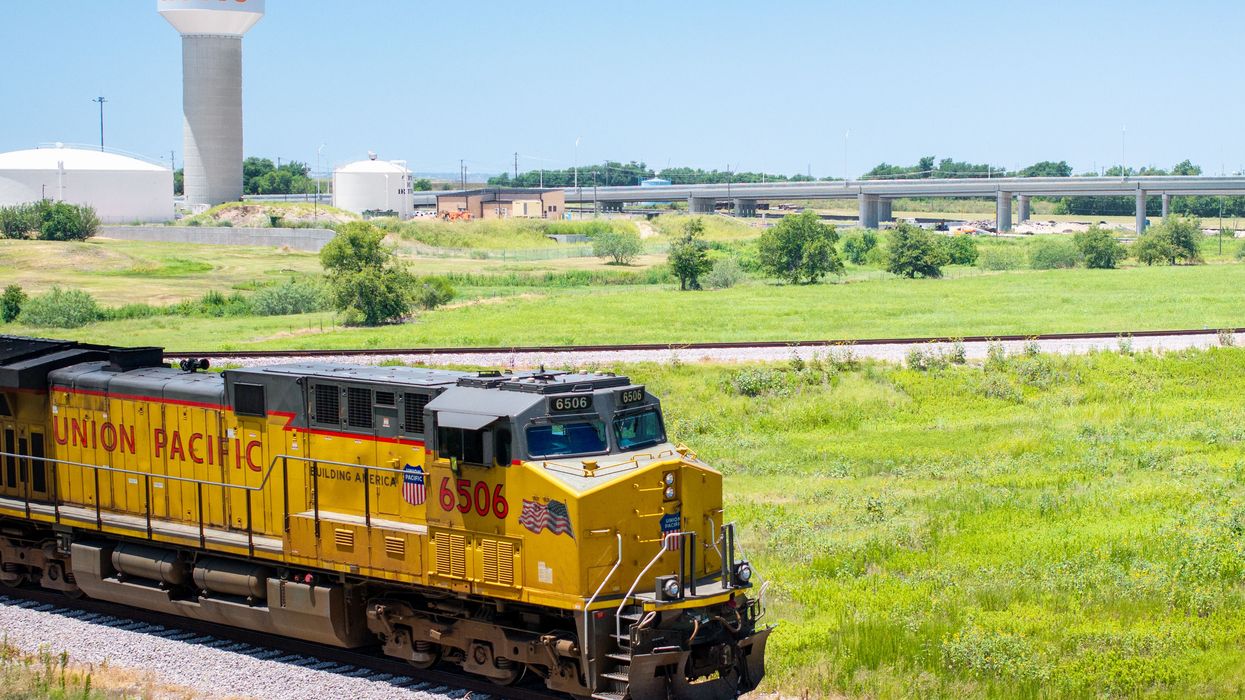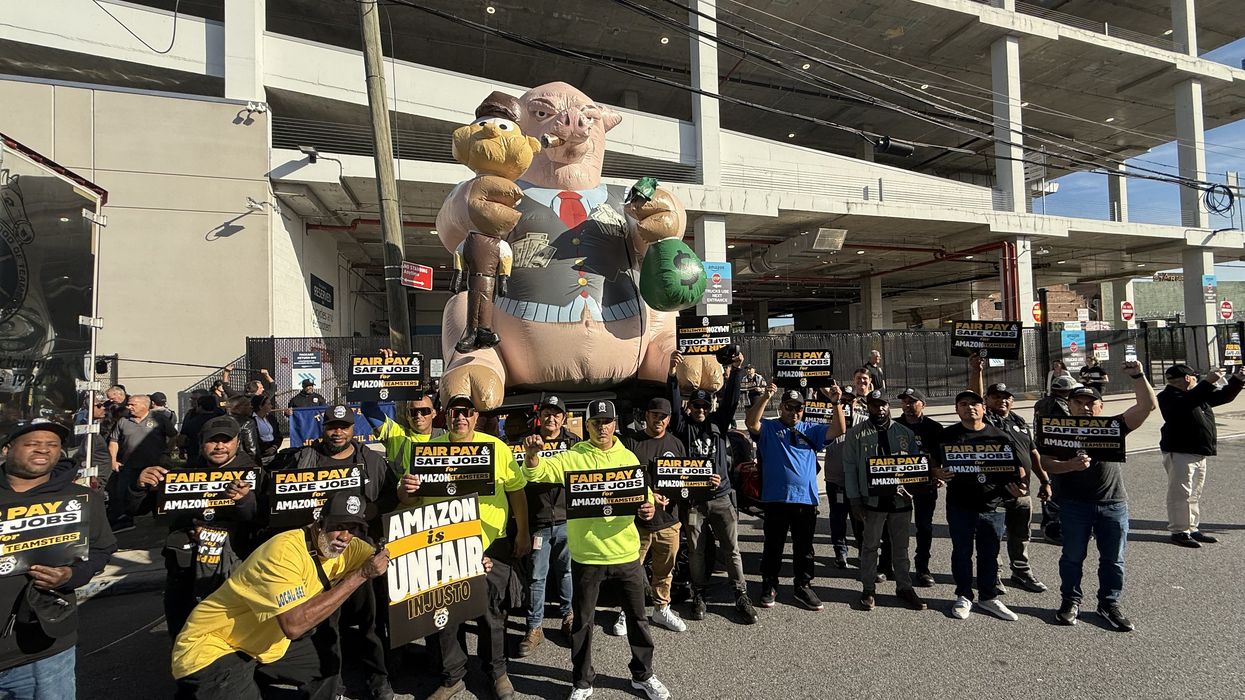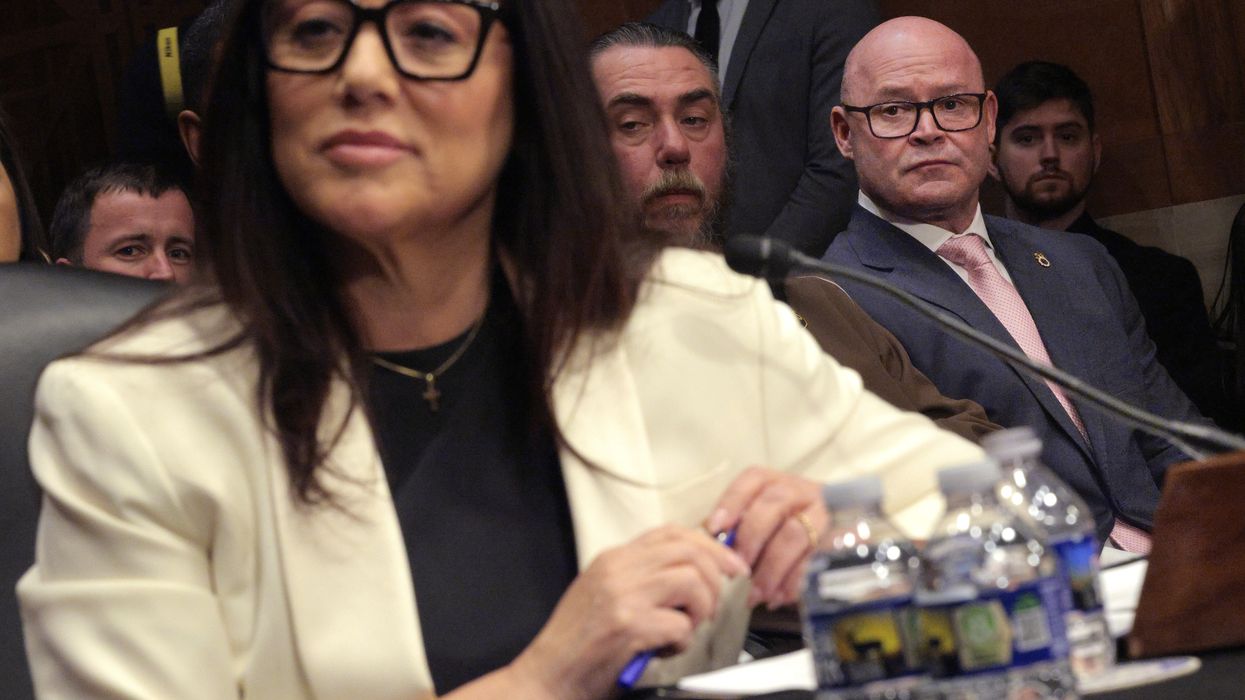Analysis Warns of 'Disastrous Consequences' From $72 Billion Railway Megamerger
"The last 40 years of railroad consolidation clearly demonstrate how this merger could threaten public safety and harm shippers, workers, consumers, and the broader economy," said an economic analyst.
A merger between two of America's biggest railroad companies could have "disastrous consequences" for workers and consumers, according to a report out Monday.
In late July, labor unions raised alarm as Union Pacific Railroad announced a $72 billion deal to acquire Norfolk Southern Railway, which, if approved by the US Surface Transportation Board (STB), would make the new entity the largest railroad company in American history, controlling over 50,000 total miles of interstate rail.
The American Economic Liberties Project (AELP), an anti-monopoly think tank, provided more evidence for those concerns with its new analysis.
"A combined Union Pacific-Norfolk Southern will have disastrous consequences: less safe workers and communities, less competition, higher costs, and service disruptions," said one of the report's authors, AELP senior fellow Erik Peinert. "For good reason, there has never been an attempt at a consolidated transcontinental railroad system until now—a scale of railroad consolidation not even met by the railroad barons of the Gilded Age."
As the report explains, America's interstate rail system is dominated by four companies that operate as a pair of "regional duopolies." Norfolk Southern lines stretch across the Eastern US, along with those owned by CSX, while areas west of the Mississippi River are covered by Union Pacific and BNSF.
This already heavily consolidated system is the product of Congress' deregulation of railroads during the 1980s and 1990s, most notably through the replacement in 1995 of the more powerful Interstate Commerce Commission (ICC) with the STB, which has more limited authority to regulate mergers.
"Even by the very lax merger standards of the late 1990s and early 2000s, these combinations were recognized as mistakes with devastating outcomes," the report says. "Shippers reported a deterioration in service, fewer options with higher prices, and the loss of jobs, while workers lost jobs and those who didn't face strenuous working conditions."
Though STB's rules tightened in 2001, requiring mergers to "enhance" competition instead of simply not harming it, the damage was already done. Over the next two decades, the report noted that the top four major railroads came to haul 7% fewer loads while hiking freight rates twice as fast as inflation. This was due in large part to the fact that 50% of customers were now "captive," that is, they had access to only one rail line, compared to just 27% two decades prior.
Another megamerger, the report warns, would cause a "likely permanent loss of competitive rail services for shippers" in large sections of the country, specifically the Midwest, where Union Pacific and Norfolk Southern have overlapping lines.
The deal has been opposed by a consortium of shipping associations, including the Freight Rail Customer Alliance, the American Chemistry Council, and the National Industrial Transport League (NITL), which warned that it would slow down service and lead to price hikes.
Labor unions—including the Teamsters, the Transport Workers Union of America, and the Railroad Workers United—have also opposed the merger, citing the companies' histories of cutting costs by laying off employees and flouting safety standards.
"Historically, rail consolidation results in job loss, diminishing labor power in negotiating better working conditions and pay, resulting in staffing shortages that lead to burnout and increased safety risks for workers and the public," the report says. "And in general, consolidation results in stagnant and reduced wages for workers, as there are fewer buyers for labor and greater leverage for the consolidated companies."
There is also a risk that if the STB approves the merger, it could embolden the other half of the duopoly, CSX and BNSF, to merge as well, creating a national duopoly where "choice and competition would be lost."
In part due to the STB's more stringent rules, no interstate railroads have attempted to merge in the 21st century. However, the Trump administration seemed to give Union Pacific and Norfolk Southern a green light when—just as proceedings for the merger were beginning in late August—President Donald Trump fired Robert Primus, a Democratic member of the STB who had been an outspoken critic of railroad consolidation, which broke a 2-2 tie on the board between Democrats and Republicans.
At the beginning of October, Primus sued the Trump administration, which had not explained his firing other than that he "did not align with the president's America First agenda." After meeting with the CEO of Union Pacific in September, Trump said that the merger "sounds good."
"Our country's supply chain demands that the board be independent and transparent. Congress mandated it 138 years ago," Primus said upon filing the lawsuit. "Failure to do so will negatively affect the network: railroads, shippers, and rail labor alike, disrupting the supply chain and ultimately injecting instability into our nation's economy. This is dangerous, and wrong, and cannot be allowed to happen."
Railroad Workers United said that Primus "was removed not for inefficiency or malfeasance, but for daring to stand for fair competition and consumer interests, a principle too radical for the 'America First' cabal."
Ashley Nowicki, the report's other author and a policy analyst at the AELP, said that the firing of Primus, "who questioned rail consolidation and the railroad's substantial lobbying efforts, raises serious concerns about political interference."
"The last 40 years of railroad consolidation clearly demonstrate how this merger could threaten public safety and harm shippers, workers, consumers, and the broader economy," she continued. "The Surface Transportation Board must show it can operate independently and protect the public interest over Wall Street."


